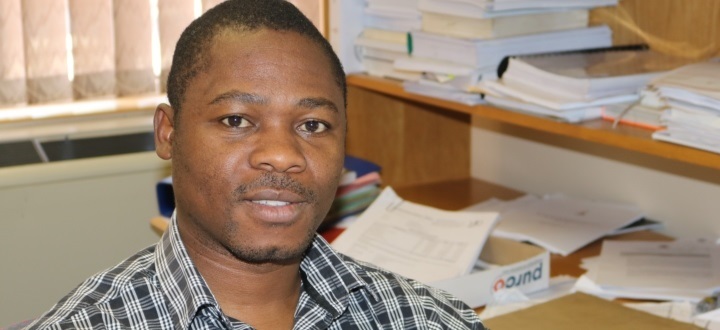

Dr Binganidzo Muchara from the Finance and Economics department at Unisa’s Graduate School of Business Leadership (SBL) provides insight into MTBPS 2018
The mid-term budget policy statement was presented by new finance minister, Tito Mboweni, on Wednesday afternoon. While the speech again acknowledged the issues – including corruption, inflated public sector wage bills and the VAT backlog – clear implementation plans to address these issues remain to be seen. With the new minister certainly in a tight spot with little room to change existing plans for 2018, the main objective appeared to be to restore trust through tabling an honest rhetoric.
The financial picture is certainly worse than anticipated, with the expected growth rate of only 0.7% - even weaker than some local economists’ forecasts. Weak economic growth and the unexpected issue of unpaid VAT refunds have increased the budget deficit. This will not go down well with the ratings agencies, and Mboweni says “honest conversations” will be heard with them. There is hope that they will see this as a once off impact, rather than a continuing trend. The rand has continued to slump following the budget.
Beyond the broader economic picture and immediate shock, there are key aspects that have particular relevance to job creation and doing business in South Africa. Central to the statement was President Cyril Ramaphosa’s economic stimulus and recovery plan. The recovery plan is a critical indicator not only of strategies to be implemented in this financial year but also of the direction that Budget 2019 will take next year in its efforts to move South Africa out of recession towards economic growth. Mboweni’s speech essentially attached numbers to the growth stimulus plan. On the positive side, at least there is a unified message with the President and Finance Minister acknowledging the issues and dedicated to a consistent approach.
Overall, government is embarking on large scale reforms in electricity, telecommunications, transport and logistics, which should have a long-term positive impact on business. Administered prices in key sectors such as energy and fuel are being reviewed. In addition, carbon tax implementation has been postponed by 6 months to June 1, 2019. A tax of R120 per ton of carbon dioxide is expected to be levied, which will place a high cost burden on companies like Sasol.
R20 billion of the R27 billion adjustment as a result of VAT refunds is certainly a large hit that the market hadn’t anticipated. While VAT was hiked to 15% this year, the state will now earn 20% less than it expected from VAT due to the refund payment. However, acknowledging the problem with VAT refunds and SARS committing to repayment within the prescribed 21 days can be seen as positive news for business. The backlog will now be settled in a once-off payment.
The “reconfiguration of state-owned enterprises”, which takes the bulk of the budget, was a critical focus. Government guarantees to state enterprises are at more than R450 billion, according to data from the National Treasury, with increasing exposure for the state growing from 54.4% in the past fiscal year to 64.5% this year as companies have drawn on the guarantees. Eskom alone has a debt burden of R399 billion. This exposure is not sustainable nor healthy for the government. The matrix of the reconfiguration becomes very important.
Privatisation may not be a desirable option for such a strategic sector, thus, the focus of the reconfiguration should be on improving business processes, rooting out unethical practices and revisiting the funding model of these parastatals. Parastatals may be closed or private equity partners may be invited to buy into parastatals, including SAA, which received a R5 billion lifeline to prevent a repay debt. R1.249 billion will go to the struggling South African Airways Express, which was grounded in May 2018.
Mboweni further emphasised the necessity to restructure the Energy sector – which must be viewed as more than just Eskom. Mboweni said that a new electricity grid could be created harnessing power from independent power producers. This is critical in sustaining employment by small companies. It is estimated that these producers will create over 61 000 jobs.
Over the next three years, public infrastructure expenditure is estimated to be R855.2 billion, of which state-owned companies account for R370.2 billion. An additional aspect of the recovery plan is the establishment of the South African Infrastructure Fund which will reprioritise infrastructure spending as crucial to economic activity. The contribution from the fiscus towards the Infrastructure Fund over the medium-term expenditure framework period will be in excess of R400bn, which will then be used to leverage additional resources from developmental finance institutions, multilateral development banks, and private lenders and investors. As part of establishing a new Infrastructure Fund, government is planning “innovative financing mechanisms”- including subsidies to make participation more attractive for companies. If a project is commercially sustainable, government will remove regulatory impediments that stand in the way of investment, especially in housing, telecommunication and transport projects including airports.
This focus on infrastructure development is good news for business. While the immediate financial picture is dire, the rallying cry for the private sector to understand the economic stimulus and growth plan and take a long-term view continues. I believe the private sector can bank on the plans for the Investment Summit, bank on the initiatives emerging from the Job Summit and bank on more infrastructure investment that will result in employment creation for the youth and economic growth.
Publish date: 2018-11-02 00:00:00.0
Contact the Marketing and Communication office: Ms Thami Kaunda at kaundn@unisa.ac.za
011 652 0339
Telephone: +27 11 652 0248 / +27 11 652 0291
Email: sbl@unisa.ac.za
Physical Address:
Cnr Janadel and Alexandra Avenues
Midrand, 1686
Gauteng, South Africa
Download map & directions (PDF)